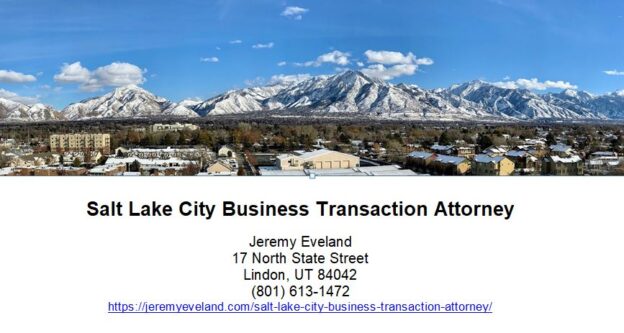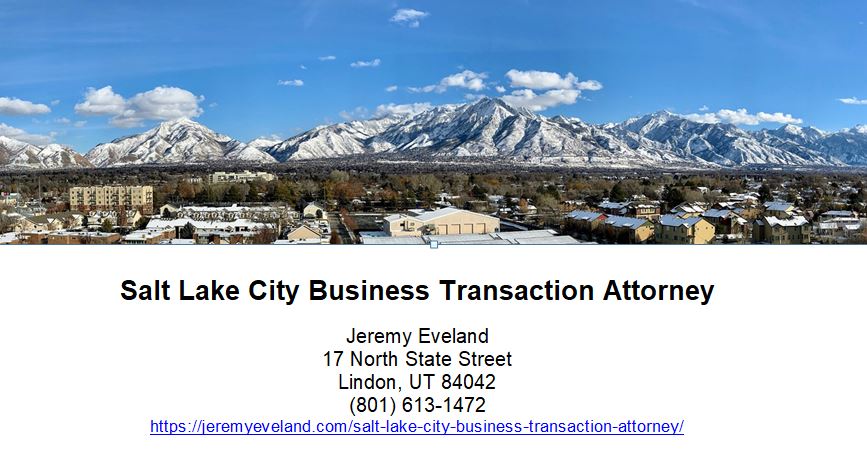-
Attorney at Law
- Introduction
- What Does a Corporate Counsel Do? A Comprehensive Overview
- Corporate Counsel: An Overview of the Role and What It Entails
- Corporate Counsel: A Comprehensive Guide to the Job and Its Responsibilities
- Corporate Counsel: An In-Depth Look at the Role and Responsibilities
- Corporate Counsel: A Comprehensive Guide to the Role and Responsibilities
- Corporate Counsel: What You Need to Know About the Job and Its Responsibilities
- Corporate Counsel: An Overview of the Job and What It Entails
- Corporate Counsel: What You Need to Know About the Role and Responsibilities
- Corporate Counsel: Why You Should Hire Jeremy Eveland For Your Business
- Exploring the Role of Corporate Counsel: Responsibilities, Skills, and Experience
“Navigating the Legal Landscape: Corporate Counsel for Your Business Success!”
Introduction
A corporate counsel is a lawyer who provides legal advice and services to a business or organization. They are responsible for ensuring that the company is in compliance with all applicable laws and regulations, as well as providing legal advice on a variety of matters. Corporate counsels are also responsible for drafting and negotiating contracts, providing advice on corporate governance, and representing the company in court. They are an integral part of any business, and their role is essential to the success of the organization.
What Does a Corporate Counsel Do? A Comprehensive Overview
A corporate counsel is a legal professional who provides legal advice and services to a company or organization. Corporate counsels are responsible for ensuring that the company or organization complies with all applicable laws and regulations, as well as providing legal advice on a variety of matters.
The primary role of a corporate counsel is to provide legal advice and guidance to the company or organization. This includes providing advice on contracts, mergers and acquisitions, intellectual property, labor and employment law, and other legal matters. Corporate counsels also review and draft legal documents, such as contracts, leases, and other agreements. They may also provide advice on corporate governance and compliance with applicable laws and regulations.
In addition to providing legal advice, corporate counsels are also responsible for managing the company’s legal affairs. This includes overseeing litigation, negotiating settlements, and representing the company in court. Corporate counsels may also be responsible for managing the company’s legal budget and ensuring that the company is in compliance with all applicable laws and regulations.
Finally, corporate counsels may also be responsible for providing training and education to the company’s employees on legal matters. This may include providing seminars and workshops on topics such as contract law, labor law, and intellectual property law.
In summary, a corporate counsel is a legal professional who provides legal advice and services to a company or organization. They are responsible for providing legal advice, managing the company’s legal affairs, and providing training and education to the company’s employees on legal matters. Corporate counsels play an important role in ensuring that the company or organization complies with all applicable laws and regulations.
Corporate Counsel: An Overview of the Role and What It Entails
Corporate counsel is a legal professional who provides legal advice and services to a company or organization. Corporate counsel is responsible for ensuring that the company or organization complies with all applicable laws and regulations, and that its business activities are conducted in a manner that is consistent with the company’s legal obligations.
The role of corporate counsel is multifaceted and can vary depending on the size and scope of the organization. Generally, corporate counsel is responsible for providing legal advice and guidance to the company’s management and staff, as well as representing the company in legal proceedings. Corporate counsel may also be responsible for drafting and negotiating contracts, reviewing and drafting corporate documents, and providing advice on corporate governance matters.
In addition to providing legal advice, corporate counsel may also be responsible for managing the company’s legal budget, ensuring that the company is in compliance with applicable laws and regulations, and providing legal training to the company’s staff. Corporate counsel may also be responsible for conducting internal investigations and representing the company in litigation.
The role of corporate counsel is an important one, as it is essential for a company to have a legal professional who can provide sound legal advice and guidance. Corporate counsel must be knowledgeable about the company’s business operations and the applicable laws and regulations that govern them. Corporate counsel must also be able to effectively communicate with the company’s management and staff, as well as with outside counsel and other legal professionals.
In order to be successful in the role of corporate counsel, it is important to have a strong understanding of the company’s business operations, as well as the applicable laws and regulations. It is also important to have excellent communication and negotiation skills, as well as the ability to think strategically and creatively. Corporate counsel must also be able to work independently and as part of a team.
Corporate Counsel: A Comprehensive Guide to the Job and Its Responsibilities
Corporate Counsel: A Comprehensive Guide to the Job and Its Responsibilities
Corporate counsel is a critical role in any organization, providing legal advice and guidance to ensure the company’s compliance with applicable laws and regulations. This guide provides an overview of the job of corporate counsel, including its responsibilities, qualifications, and career paths.
Responsibilities
The primary responsibility of corporate counsel is to provide legal advice and guidance to the company’s management and staff. This includes researching and interpreting laws and regulations, drafting and reviewing contracts, and providing advice on legal issues. Corporate counsel may also be responsible for managing litigation, negotiating settlements, and representing the company in court.
Qualifications
To become a corporate counsel, a person must have a law degree from an accredited law school and be licensed to practice law in the state where the company is located. In addition, corporate counsel must have a thorough understanding of the laws and regulations that apply to the company’s business.
Career Paths
Corporate counsel can pursue a variety of career paths. Some may choose to specialize in a particular area of law, such as corporate law, tax law, or intellectual property law. Others may choose to focus on a particular industry, such as healthcare, finance, or technology. Corporate counsel may also choose to pursue a career in public service, such as working for a government agency or a nonprofit organization.
Conclusion
Corporate counsel is a critical role in any organization, providing legal advice and guidance to ensure the company’s compliance with applicable laws and regulations. This guide provides an overview of the job of corporate counsel, including its responsibilities, qualifications, and career paths. With the right qualifications and experience, corporate counsel can pursue a variety of career paths and make a meaningful contribution to their organization.
Corporate Counsel: An In-Depth Look at the Role and Responsibilities
Corporate counsel is a critical role in any organization, providing legal advice and guidance to ensure the company’s compliance with applicable laws and regulations. Corporate counsel is responsible for providing legal advice and guidance to the company’s management and board of directors, as well as representing the company in legal proceedings.
The primary role of corporate counsel is to provide legal advice and guidance to the company’s management and board of directors. This includes advising on legal matters such as contracts, mergers and acquisitions, intellectual property, labor and employment, and regulatory compliance. Corporate counsel also provides advice on corporate governance, corporate finance, and other legal matters.
In addition to providing legal advice and guidance, corporate counsel is responsible for representing the company in legal proceedings. This includes appearing in court, negotiating settlements, and representing the company in arbitration and mediation proceedings. Corporate counsel is also responsible for drafting and reviewing legal documents, such as contracts, leases, and other agreements.
Corporate counsel must be knowledgeable about the laws and regulations that apply to the company’s operations. This includes understanding the company’s industry and the applicable laws and regulations that govern it. Corporate counsel must also be familiar with the company’s corporate structure and the roles and responsibilities of its officers and directors.
Corporate counsel must also be able to effectively communicate with the company’s management and board of directors. This includes providing clear and concise legal advice and guidance, as well as being able to explain complex legal concepts in a way that is understandable to non-lawyers.
Finally, corporate counsel must be able to manage their workload and prioritize tasks. This includes being able to effectively manage multiple projects and deadlines, as well as being able to work independently and as part of a team.
In summary, corporate counsel is a critical role in any organization, providing legal advice and guidance to ensure the company’s compliance with applicable laws and regulations. Corporate counsel is responsible for providing legal advice and guidance to the company’s management and board of directors, as well as representing the company in legal proceedings. Corporate counsel must be knowledgeable about the laws and regulations that apply to the company’s operations, be able to effectively communicate with the company’s management and board of directors, and be able to manage their workload and prioritize tasks.
Corporate Counsel: A Comprehensive Guide to the Role and Responsibilities
Corporate Counsel is a critical role in any organization. Corporate Counsel is responsible for providing legal advice and guidance to the organization, its officers, and its employees. Corporate Counsel is also responsible for ensuring that the organization is in compliance with applicable laws and regulations.
The role of Corporate Counsel is multifaceted and requires a broad range of skills and knowledge. Corporate Counsel must be knowledgeable in a variety of areas, including corporate law, contract law, labor law, intellectual property law, and other areas of law that may be relevant to the organization. Corporate Counsel must also be familiar with the organization’s policies and procedures, as well as the laws and regulations that apply to the organization.
In addition to providing legal advice and guidance, Corporate Counsel is also responsible for drafting and negotiating contracts, reviewing and drafting corporate documents, and providing legal advice on a variety of matters. Corporate Counsel must also be familiar with the organization’s corporate structure and be able to advise on corporate governance matters.
Corporate Counsel must also be able to identify potential legal risks and advise the organization on how to mitigate those risks. Corporate Counsel must also be able to provide advice on how to handle disputes and litigation, as well as how to handle regulatory investigations.
Finally, Corporate Counsel must be able to provide advice on a variety of other matters, such as corporate compliance, corporate governance, and corporate finance. Corporate Counsel must also be able to provide advice on a variety of other matters, such as corporate social responsibility, corporate ethics, and corporate sustainability.
The role of Corporate Counsel is complex and requires a broad range of skills and knowledge. Corporate Counsel must be knowledgeable in a variety of areas, including corporate law, contract law, labor law, intellectual property law, and other areas of law that may be relevant to the organization. Corporate Counsel must also be familiar with the organization’s policies and procedures, as well as the laws and regulations that apply to the organization. Corporate Counsel must also be able to identify potential legal risks and advise the organization on how to mitigate those risks. Corporate Counsel must also be able to provide advice on how to handle disputes and litigation, as well as how to handle regulatory investigations. Finally, Corporate Counsel must be able to provide advice on a variety of other matters, such as corporate compliance, corporate governance, and corporate finance.
Corporate Counsel: What You Need to Know About the Job and Its Responsibilities
Corporate counsel is a specialized legal role that involves providing legal advice and services to a company or organization. Corporate counsels are responsible for ensuring that the company or organization complies with all applicable laws and regulations, as well as providing legal advice on a variety of matters.
The primary responsibility of corporate counsel is to provide legal advice and services to the company or organization. This includes researching and interpreting laws and regulations, drafting legal documents, and providing advice on legal matters. Corporate counsels must also be knowledgeable about the company’s business operations and be able to provide advice on how to best protect the company’s interests.
In addition to providing legal advice, corporate counsels are also responsible for managing the company’s legal affairs. This includes overseeing the company’s contracts, negotiating with outside parties, and representing the company in court. Corporate counsels must also be familiar with the company’s corporate structure and be able to advise on corporate governance matters.
Corporate counsels must also be able to identify potential legal risks and develop strategies to mitigate them. This includes staying up to date on changes in the law and understanding how they may affect the company’s operations. Corporate counsels must also be able to provide guidance on compliance with applicable laws and regulations.
Finally, corporate counsels must be able to communicate effectively with the company’s management and other stakeholders. This includes providing clear and concise legal advice and being able to explain complex legal concepts in a way that is easy to understand.
In summary, corporate counsels are responsible for providing legal advice and services to a company or organization, managing the company’s legal affairs, identifying potential legal risks, and communicating effectively with the company’s management and other stakeholders. Corporate counsels must have a thorough understanding of the law and be able to provide clear and concise legal advice.
Corporate Counsel: An Overview of the Job and What It Entails
Corporate counsel is a legal professional who provides legal advice and services to a company or organization. Corporate counsel is responsible for ensuring that the company or organization complies with all applicable laws and regulations, and that its business activities are conducted in a manner that is consistent with the company’s legal obligations.
The role of corporate counsel is to provide legal advice and services to the company or organization. This includes providing advice on legal matters, drafting and reviewing contracts, providing legal opinions, and representing the company or organization in court. Corporate counsel may also be responsible for providing advice on corporate governance, compliance, and risk management.
The duties of corporate counsel vary depending on the size and scope of the company or organization. In larger companies, corporate counsel may be responsible for managing a team of lawyers and other legal professionals. In smaller companies, corporate counsel may be the sole legal professional responsible for providing legal advice and services.
In addition to providing legal advice and services, corporate counsel may also be responsible for developing and implementing policies and procedures to ensure compliance with applicable laws and regulations. Corporate counsel may also be responsible for providing training to employees on legal matters, and for conducting internal investigations into potential violations of the law.
The job of corporate counsel requires a high level of knowledge and expertise in the areas of law that are relevant to the company or organization. Corporate counsel must have a thorough understanding of the company’s legal obligations and must be able to provide sound legal advice and services. Corporate counsel must also be able to effectively communicate with other members of the company or organization, as well as with external parties such as clients, vendors, and government agencies.
The job of corporate counsel is an important one, and requires a high level of skill and expertise. Corporate counsel must be able to provide sound legal advice and services, while also ensuring that the company or organization complies with all applicable laws and regulations.
Corporate Counsel: What You Need to Know About the Role and Responsibilities
Corporate counsel is a critical role in any organization. Corporate counsel is responsible for providing legal advice and guidance to the organization, its officers, and its employees. They are also responsible for ensuring that the organization is in compliance with all applicable laws and regulations.
The role of corporate counsel is to provide legal advice and guidance to the organization, its officers, and its employees. This includes providing advice on legal matters, such as contracts, corporate governance, intellectual property, and regulatory compliance. Corporate counsel also assists in the negotiation and drafting of contracts, and provides advice on legal issues that arise in the course of business.
In addition to providing legal advice, corporate counsel is also responsible for ensuring that the organization is in compliance with all applicable laws and regulations. This includes researching and understanding the relevant laws and regulations, and ensuring that the organization is in compliance with them. Corporate counsel also assists in the development of policies and procedures to ensure compliance with applicable laws and regulations.
Corporate counsel must also be aware of the organization’s risk management strategies. This includes understanding the organization’s risk management policies and procedures, and ensuring that they are being followed. Corporate counsel must also be aware of any potential legal risks that the organization may face, and provide advice on how to mitigate those risks.
Finally, corporate counsel must be able to effectively communicate with the organization’s officers and employees. This includes providing clear and concise legal advice, and ensuring that the organization’s officers and employees understand the legal implications of their decisions. Corporate counsel must also be able to effectively communicate with external parties, such as government agencies, vendors, and other organizations.
In summary, corporate counsel is a critical role in any organization. Corporate counsel is responsible for providing legal advice and guidance to the organization, its officers, and its employees. They are also responsible for ensuring that the organization is in compliance with all applicable laws and regulations. Corporate counsel must also be aware of the organization’s risk management strategies, and be able to effectively communicate with the organization’s officers and employees.
Corporate Counsel: Why You Should Hire Jeremy Eveland For Your Business
As a corporate counsel, you understand the importance of having a reliable and knowledgeable legal advisor on your team. Jeremy Eveland is an experienced attorney who can provide your business with the legal advice and representation it needs.
Jeremy has a wealth of experience in corporate law, having worked in the field for years. He has a deep understanding of the legal issues that businesses face, and he is well-versed in the laws and regulations that govern corporate operations. He is also highly knowledgeable in contract law, which is essential for any business.
Jeremy is an excellent communicator and negotiator, and he is adept at finding creative solutions to complex legal issues. He is also a skilled litigator, and he has successfully represented clients in a variety of legal matters.
Jeremy is a highly organized and detail-oriented attorney who is committed to providing the highest quality of legal services. He is also a team player who is willing to work with other members of your legal team to ensure that your business is in compliance with all applicable laws and regulations.
In addition to his legal expertise, Jeremy is a personable and approachable individual who is easy to work with. He is also a strong advocate for his clients, and he is dedicated to helping them achieve their legal goals.
For all of these reasons, Jeremy Eveland is an excellent choice for your business’s corporate counsel. He has the experience, knowledge, and skills necessary to provide your business with the legal advice and representation it needs.
Exploring the Role of Corporate Counsel: Responsibilities, Skills, and Experience
As the role of corporate counsel continues to evolve, it is important to understand the responsibilities, skills, and experience necessary to be successful in this position. Corporate counsel is a legal professional who provides legal advice and guidance to a company or organization. This role is often filled by an attorney, but may also be filled by a non-attorney with a legal background.
The primary responsibility of corporate counsel is to provide legal advice and guidance to the company or organization. This includes providing advice on legal matters, such as contracts, regulations, and compliance. Corporate counsel must also be knowledgeable about the company’s business operations and be able to provide advice on how to best protect the company’s interests. Additionally, corporate counsel may be responsible for drafting and negotiating contracts, as well as providing legal representation in court.
In order to be successful in this role, corporate counsel must possess a variety of skills. These include strong communication and interpersonal skills, as well as the ability to think critically and analyze complex legal issues. Corporate counsel must also have a thorough understanding of the law and be able to apply it to the company’s specific needs. Additionally, corporate counsel must be able to work independently and be comfortable working with a variety of stakeholders, including executives, board members, and other legal professionals.
Experience is also an important factor in the role of corporate counsel. Corporate counsel should have a minimum of five years of experience in a legal setting, such as a law firm or corporate legal department. Additionally, corporate counsel should have experience in the specific area of law that they will be working in, such as contract law or corporate law. Corporate counsel should also have experience in working with a variety of stakeholders and be comfortable working in a fast-paced environment.
The role of corporate counsel is an important one, and requires a unique set of skills and experience. Corporate counsel must be knowledgeable about the law and be able to provide legal advice and guidance to the company or organization. Additionally, corporate counsel must possess strong communication and interpersonal skills, as well as the ability to think critically and analyze complex legal issues. Finally, corporate counsel should have a minimum of five years of experience in a legal setting, as well as experience in the specific area of law that they will be working in.
Areas We Serve
We serve individuals and businesses in the following locations:
Salt Lake City Utah
West Valley City Utah
Provo Utah
West Jordan Utah
Orem Utah
Sandy Utah
Ogden Utah
St. George Utah
Layton Utah
South Jordan Utah
Lehi Utah
Millcreek Utah
Taylorsville Utah
Logan Utah
Murray Utah
Draper Utah
Bountiful Utah
Riverton Utah
Herriman Utah
Spanish Fork Utah
Roy Utah
Pleasant Grove Utah
Kearns Utah
Tooele Utah
Cottonwood Heights Utah
Midvale Utah
Springville Utah
Eagle Mountain Utah
Cedar City Utah
Kaysville Utah
Clearfield Utah
Holladay Utah
American Fork Utah
Syracuse Utah
Saratoga Springs Utah
Magna Utah
Washington Utah
South Salt Lake Utah
Farmington Utah
Clinton Utah
North Salt Lake Utah
Payson Utah
North Ogden Utah
Brigham City Utah
Highland Utah
Centerville Utah
Hurricane Utah
South Ogden Utah
Heber Utah
West Haven Utah
Bluffdale Utah
Santaquin Utah
Smithfield Utah
Woods Cross Utah
Grantsville Utah
Lindon Utah
North Logan Utah
West Point Utah
Vernal Utah
Alpine Utah
Cedar Hills Utah
Pleasant View Utah
Mapleton Utah
Stansbury Par Utah
Washington Terrace Utah
Riverdale Utah
Hooper Utah
Tremonton Utah
Ivins Utah
Park City Utah
Price Utah
Hyrum Utah
Summit Park Utah
Salem Utah
Richfield Utah
Santa Clara Utah
Providence Utah
South Weber Utah
Vineyard Utah
Ephraim Utah
Roosevelt Utah
Farr West Utah
Plain City Utah
Nibley Utah
Enoch Utah
Harrisville Utah
Snyderville Utah
Fruit Heights Utah
Nephi Utah
White City Utah
West Bountiful Utah
Sunset Utah
Moab Utah
Midway Utah
Perry Utah
Kanab Utah
Hyde Park Utah
Silver Summit Utah
La Verkin Utah
Morgan Utah
What Is Corporate Counsel Consultation
When you need help from Corporate Counsel call Jeremy D. Eveland, MBA, JD (801) 613-1472 for a consultation.
Jeremy Eveland
17 North State Street
Lindon UT 84042
(801) 613-1472
Related Posts
Business Strategy and Consulting
Business Succession Lawyer Roy Utah
Business Lawyer St George Utah
Estate Planning Lawyer Ogden Utah
Business Succession Lawyer Pleasant Grove Utah
Market Analysis For Business Antitrust Merger
Are Legal Expenses for Estate Planning Deductible?
Common Legal Issues That Should Involve A Business Lawyer
























